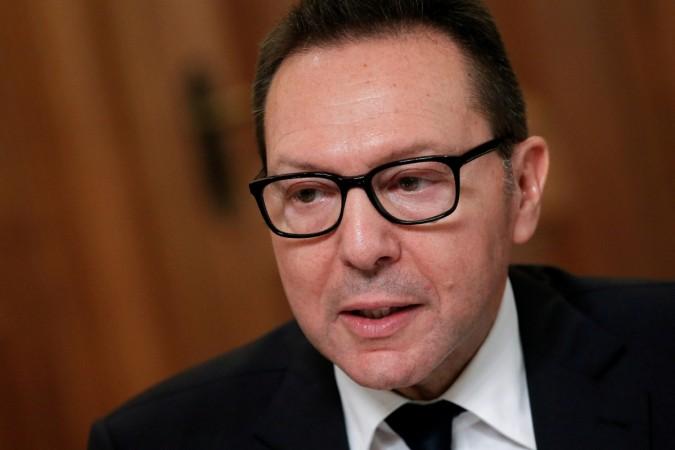
Greece's central bank governor has warned the country not to backtrack on commitments to its lenders after it exits the last of its three bailouts next week, saying markets would abandon it.
Yannis Stournaras told Sunday's Kathimerini newspaper any backpedalling could leave Greece facing major risks at a time when it would be particularly vulnerable to financial turbulence in neighbouring Turkey, Italy and beyond.
Athens is set to exit its latest bailout on August 20 and rely on bond markets thereafter to refinance its debt after a nearly nine-year debt crisis that shrank its economy by a quarter and forced it to implement painful austerity.
"If we backtrack on what we have agreed, now or in the future, the markets will abandon us and we will not be able to refinance maturing loans on sustainable-debt terms," Bank of Greece Governor Yannis Stournaras told the paper.
Since the debt crisis exploded in early 2010, four successive governments fought to keep bankruptcy at bay, relying on the biggest bailout in economic history, more than 260 billion euros lent by Greece's eurozone partners and the IMF.
Shut out of bond markets after a fiscal derailment, Greece officially asked for a bailout in April 2010 with the International Monetary Fund and its eurozone partners granting 110 billion euros in loans to avert a financial meltdown. Two more aid packages followed.
Athens returned to sovereign debt markets in July 2017 with a 3.0 billion euro bond sale that marked a milestone in its return to economic health.
"If there is strong international turbulence, either in our neighbouring Italy or Turkey or in the global economy, we will face difficulties in tapping markets given that the sensitivity coefficient of Greek bonds remains high," Stournaras said.
But this, the second risk, is more manageable, he said and should wane as long as markets become convinced that Greece is pursuing the right economic policy and keeping its promises.
"Let's not forget the eurozone still has gaps in its architecture. The banking union has not been completed, thus any convulsion affects its weaker member-states more," he said.
Post-bailout, Athens has committed to attaining demanding primary budget surpluses - excluding debt servicing outlays - of 3.5 percent of GDP until 2022, and 2.2 percent until 2060.
French Finance Minister Bruno Le Maire told Greek newspaper To Vima that the goal of Greece's economic adjustment programme was the country's return to normality and that its bailout exit is a"great success."
But the agreed commitments must be adhered to.
"The commitments assumed by Greece for the future are clear, particularly on primary surpluses and the maintenance of the reforms momentum. I have no doubt that they will be respected," the minister was quoted as saying.











